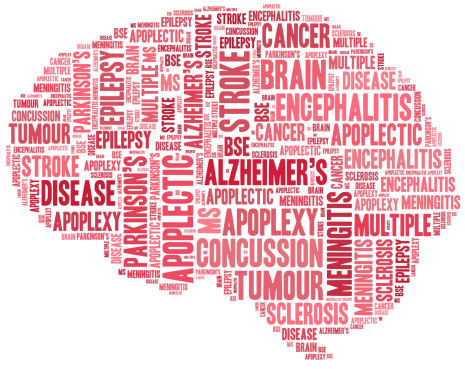 Dementia and Alzheimer’s disease are serious medical conditions that are extremely common. What’s worse is that in the coming decades, the number of cases is going to skyrocket. There are roughly 35.6 million people living with dementia now, and that number is expected to double every 20 years. Researchers and doctors know this, so plenty of money and resources are being put towards preventative and treatment methods.
Dementia and Alzheimer’s disease are serious medical conditions that are extremely common. What’s worse is that in the coming decades, the number of cases is going to skyrocket. There are roughly 35.6 million people living with dementia now, and that number is expected to double every 20 years. Researchers and doctors know this, so plenty of money and resources are being put towards preventative and treatment methods.
But most of the work is going towards pharmaceutical and hospital treatments, even though there is plenty of evidence to show lifestyle can play a major role in a person’s risk for acquiring Alzheimer’s and dementia. What you eat, how healthy you are, and how active you keep your mind can all play a role in keeping your brain strong as you age. An increasing number of studies are indicating that a healthy lifestyle not only keeps your heart and body healthy, but it offers major benefits for your brain, too.
Diet: Diet is one of the most important elements of a healthy existence, and I would go as far as to argue that it’s the most important aspect of your life. To your brain and body, the differences between healthy and unhealthy nutrition are vast and increasingly evident. If you eat a healthy diet, low in cholesterol and rich in healthy fats, protein, legumes, and fruits and vegetables, you’re giving yourself the best chance at preventing diseases like cancer, diabetes, dementia, and Alzheimer’s.
A diet low in cholesterol, for example, prevents arterial hardening and blockages that inhibit blood from reaching the brain. Eating healthy fats, like omega-3, and fruits and vegetables can lower cholesterol, allowing for blood to flow more easily to the brain. Furthermore, omega-3 fatty acids help promote brain function by replacing lost tissue (the majority of your brain is made of fat).
Limiting arterial blockages also helps lower the risk of a stroke, which is important for your brain health because stroke victims typically have an increased risk of developing Alzheimer’s and dementia.
Overall Health: Taking care of your brain means you have to take care of your body. If you’re inactive, have a poor diet, or do other things that put you at higher risk for health problems, you can bet your brain will follow suit. Therefore, if you’ve got type 2 diabetes or at a high risk for cancer due to your lifestyle, Alzheimer’s and dementia are definitely a real possibility. For example, if you’re overweight or have high blood pressure, there is an elevated risk for getting dementia later in life.
Exercise has proven to be good for your mind. It can limit anxiety and promote blood flow to the brain, relieving stress and setting a condition for optimal functioning. Furthermore, exercise promotes weight loss and lowers the health risks associated with being overweight, many of which are closely associated with future dementia diagnosis.
Keep Your Mind Active: Keeping your mind active lets the neurons fire away. It keeps you sharp so your brain isn’t sitting idle like it were on a sofa. Spend time talking to friends, trying new activities and challenging yourself to keep your mind healthy and active!
Do what you can to lower your risk of acquiring Alzheimer’s and dementia. There is so much evidence to show lifestyle plays an important role, so making the right decisions can pay big dividends in the future.
Sources for Today’s Article:
Cole, G., “Omega-3 Fatty Acids and Dementia,” National Institutes of Health web site, August 2009; http://www.ncbi.nlm.nih.gov/pubmed/19523795, last accessed September 17, 2014.
“Exercise ‘significant role’ in reducing risk of dementia, long-term study finds,” BBC News web site, December 10, 2013; http://www.bbc.com/news/uk-wales-25303707, last accessed September 17, 2014.
